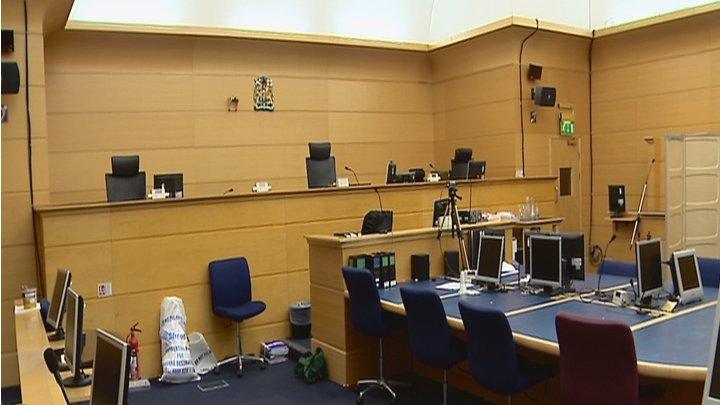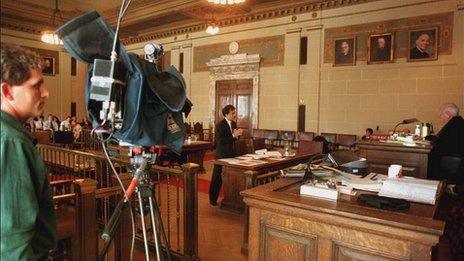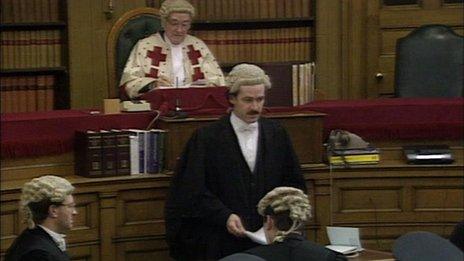Cameras could be allowed in Scottish courts
- Published
Lord Gill says he will prepare guidance for the implementation of the recommendations
Some court cases could be shown live on television under proposals put forward by Scotland's judges.
Their report has recommended sentencing statements by judges and sheriffs could be shown.
The review group, chaired by Lady Dorrian, also backed the idea of live tweeting by reporters in court.
But they said broadcasting or recording of cases involving children, sexual offences and vulnerable witnesses should not be allowed.
Lord President Lord Gill, Scotland's most senior judge, ordered the review because technology had changed dramatically in the 20 years since broadcasters were first allowed to televise some proceedings.
Three or four applications are submitted each year to film in court, but permission has rarely been given.
Lord Gill said: "I am grateful to Lady Dorrian and her group for having carried out this exercise so thoroughly.
"These well-considered recommendations have the support of the judges. I accept all of the recommendations.
"They are entirely appropriate in the contemporary world. My office will now prepare guidance on the implementation of Lady Dorrian's report."
The recommendations of the report include:
Filming of civil and criminal appeals, and legal debates in civil first instance proceedings, such as judicial review or procedure roll hearings, should be allowed for live transmission
The court should allow criminal trials to be filmed for documentary purposes in certain circumstances
No live transmission or filming for subsequent news broadcast should be allowed for criminal first instance business or for civil proceedings involving witnesses
Filming of criminal trials for live transmission should not be allowed
Journalists who register in advance with the Scottish Court Service should be permitted the use of live text-based communications such as Twitter from court
A total of 17 individuals and organisations responded to a consultation process during the preparation of the report.
'Accessible justice system'
The report has been welcomed by the Faculty of Advocates.
Its dean, James Wolffe QC, said: "In keeping with his vision of an open and accessible justice system - a vision which I share - the Lord President has made an important announcement about televising the courts.
"While there must be safeguards to protect the interests of justice, public understanding of the work of the courts - which is fundamental to our democracy - will be enhanced by these proposals, and I welcome them."
The Law Society of Scotland has also backed the proposals.
Fiona Robb, secretary to the Law Society of Scotland's Civil Justice Committee, said: "Used responsibly, cameras in court and the use of features like live tweeting will help to demystify the law, allowing the public to gain insight into the process and improve access to justice.
"While we have previously expressed concerns about significantly increasing the jurisdiction limit of the Court of Session and the huge impact that it is likely to have on Scotland's sheriff courts, we do believe that there will be significant improvements to the running of our courts as a result of these reforms."
- Published18 October 2012

- Published2 October 2012

- Published10 May 2012

- Published18 April 2012
